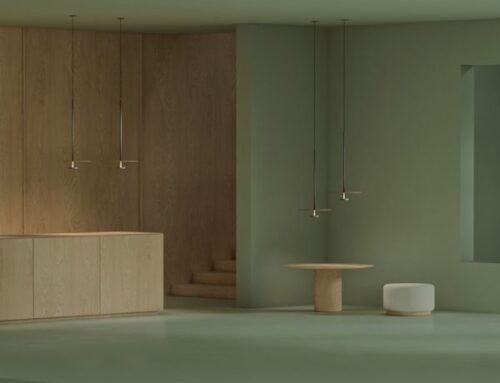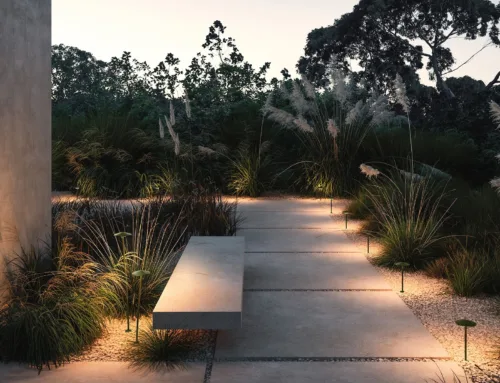La importancia de la luz en el estado de ánimo y rendimiento. Para comprender el papel que juega la iluminación o la influencia que tiene sobre nuestro estado de ánimo, empezaremos explicando qué es el ciclo circadiano. Esta es la base para comprender cómo es nuestro estado de ánimo en función de la luz que estamos recibiendo.
¿qué es el ciclo circadiano?
El ciclo circadiano es uno de los ritmos biológicos de nuestro organismo. Estos ritmos biológicos, a los que estamos tan adaptados, se encargan de regular las funciones fisiológicas con carácter repetitivo o cíclico cada 24 horas. El ritmo circadiano es el encargado de regular la función del sueño, donde la transición sueño y vigilia se asocia principalmente a los estímulos de la luz. Puede ser que nunca hayas oido hablar de este concepto, sin embargo habrás experimentado despertarte justo antes de que suene el despertador o despertarte al salir el sol, aunque no hayas dormido suficiente. Se trata del reloj biológico. ¡Eso si te suena seguro!
Resumiendo el ciclo circadiano podríamos decir que a medida que se acerca la noche, nuestro organismo aumenta su temperatura y segrega melatonina. Es en este momento cuando cogemos el sueño hasta el día siguiente. A primera hora de la mañana, en cuanto nos exponemos al sol, caen los niveles de melatonina, produciendo un mayor estado de alerta y dándonos la energía necesaria para enfrentar el día. Tras la comida hay un aumento de temperatura y segregación de melatonina que explicaría el origen de la siesta.
Respetar el ciclo circadiano mejora el estado de ánimo y el rendimiento
Para ayudarnos con el ritmo natural de nuestro organismo, se pautan unos hábitos o rutinas que funcionarán como sincronizadores externos, es el caso del horario laboral, las horas de descanso y comida o incluso el rato destinado a la vida social o el gimnasio. Cuanto menos se cambien estas rutinas, mejor funcionamiento tendrá nuestro ciclo circadiano y gozaremos de mayor bienestar y mejor estado de ánimo. Sin embargo, el horario laboral, podemos decir que es el que marca el eje principal de nuestro ciclo ya que en función del mismo pautaremos nuestro ritmo diario. Estoy pensando, por ejemplo, en personas que trabajan de noche o a turnos. Es probable que tengan problemas de sueño o que no cuenten con una buena calidad de sueño.
Contar con una mala calidad de sueño afecta no solo al estado de ánimo sino también a la salud física. Son muchas las afecciones negativas de un ciclo circadiano desordenado pero hablaremos por ejemplo de nuestro cerebro. Nuestro cerebro necesita las horas de sueño para regenerarse. Es mientras dormimos cuando se deshace de producto neuronal acumulado durante la vigilia como la proteína betamiloide, responsable de enfermedades neuronales como el Alzheimer.
Pero, ¿y qué podemos hacer si no tenemos un ritmo de vida adaptado a la luz natural del sol?
El papel de la iluminación como regulador del ritmo de vida
Lo que está claro es que en la actualidad los estímulos lumínicos han cambiado mucho. Ahora somos capaces de hacer nuestra vida sin limitarnos a las horas de sol y luz natural como si que ocurría cuando no existía electricidad. La luz artificial y el uso de pantallas hace que podamos recibir luz en cualquier momento y esto puede producir una desorientación en nuestro ciclo circadiano.
El trabajo de un diseñador de iluminación no es solo elegir una lámpara bonita sino que también tiene que tener en cuenta este ritmo biológico para dar soluciones adaptadas y que simulen un ciclo real. Con esto quiero decir que los profesionales involucrados en el diseño de hogares y espacios de trabajo tendrán que simular e imitar la luz natural del sol, desde sus horas hasta su intensidad y color.
A primera hora de la mañana utilizaremos iluminación fría que ayudará a mantenernos despiertos y ágiles. De cara a la noche, cuando nuestro cuerpo debe estar más relajado utilizaremos luces cálidas. Luego está la luz azul que debemos tener precaución con ella porque inhibe la melatonina y puedo quitarnos el sueño. Es por ello que la luz azul se utiliza en salas de trabajo y concentración donde el rendimiento ha de ser mayor. Pero cuidado con las pantallas antes d irnos a dormir, emiten luz azul y estaríamos avisando a nuestro cuerpo erroneamente y nos podríamos desvelar.
El control de la iluminación para simular la luz natural del sol
La adaptación de la iluminación a los diferentes momentos del día es posible gracias a la dimerización y al control / domótica. Los sistemas innovadores de control lumínico son la Joya de la corona en nuestro sector, gracias a ellos conseguir la iluminación necesaria en cada momento es sencillo e incluso se pueden dejar programadas diferentes escenas lumínicas en función de si es entre semana o fin de semana, en función de si tenemos o no invitados, etc. En definitiva, con una sola pulsación podremos cambiar nuestro estado de animo o rendimiento gracias a la luz artificial.
Hace unas semanas presentábamos en feria nuestro sistema de control Casambi, una revolución que nos hace subir de nivel.







